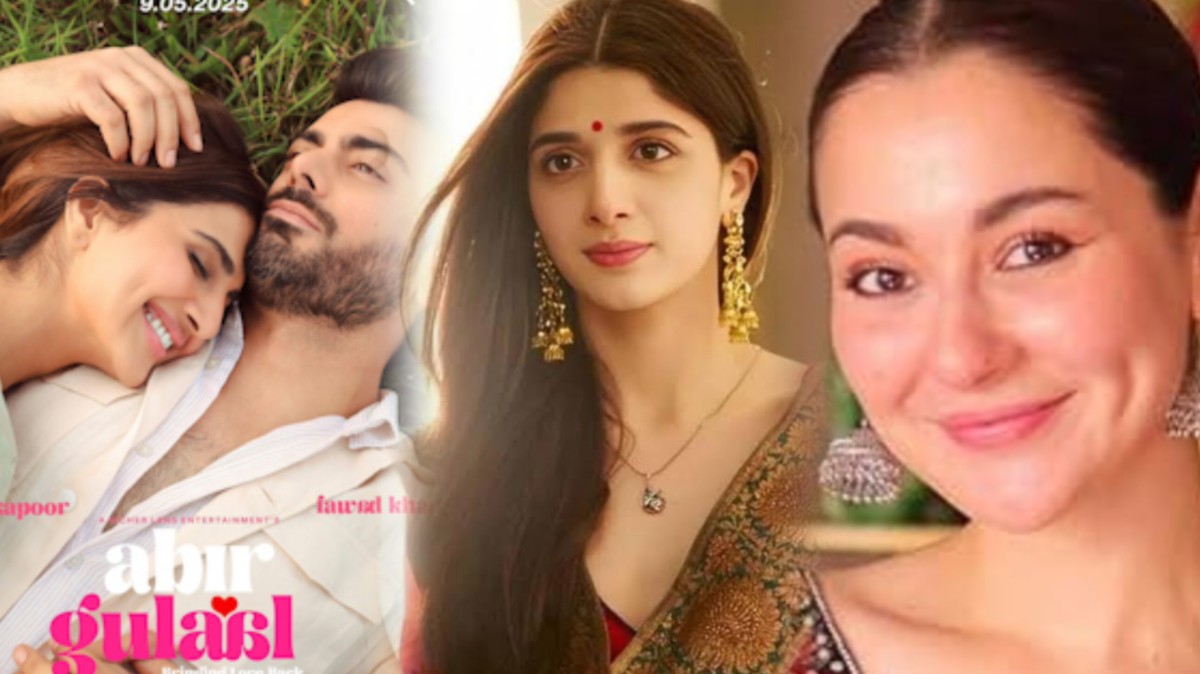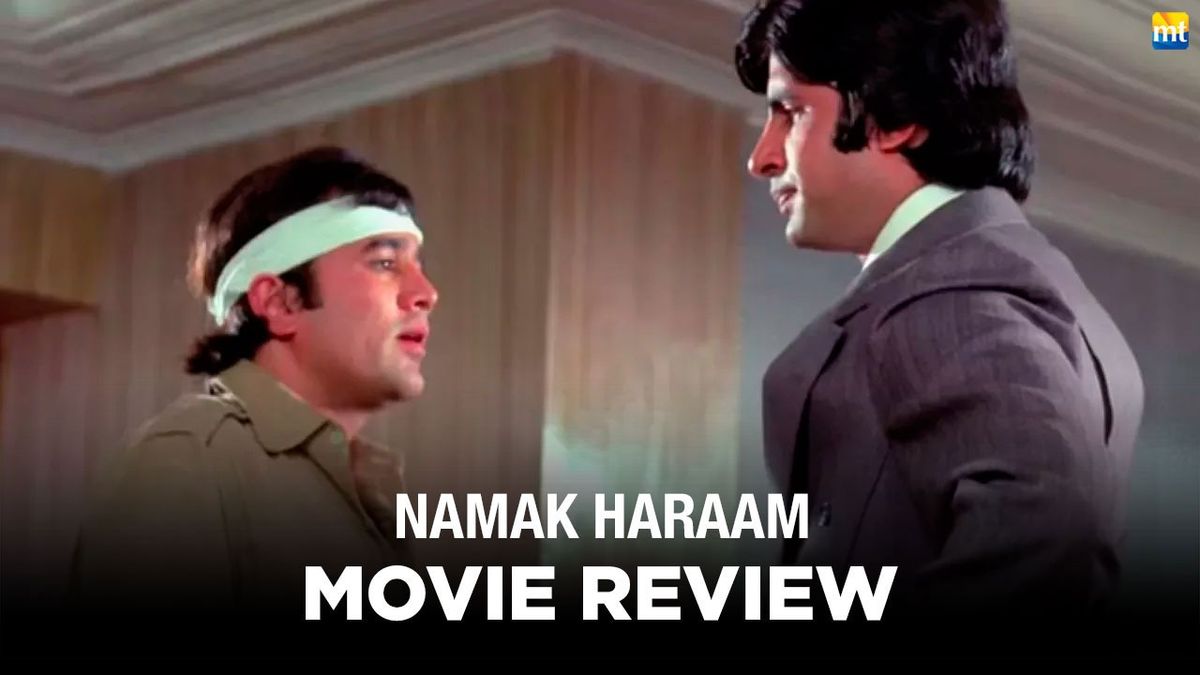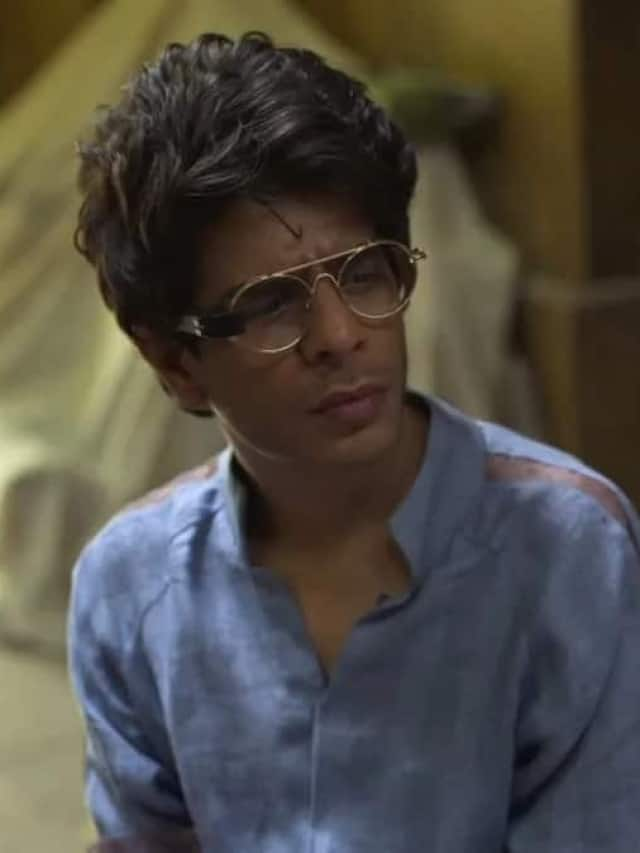
Bollywood is wooing Pakistan again, a country that has banned its films since 2019 – Beyond Bollywood
Unless this is a small part of some Indo-Pak back-channel diplomacy, there is no merit in roping in Pakistani artists in the Indian entertainment space.
By Mayur Lookhar
“Art is something that travels across all borders. Art knows no culture and creed.” – Fawad Khan
“Art bridges distances and should be allowed to do so.” – Adnan Siddiqui
“I strongly believe art can build a bridge between countries. To me, art has no boundaries and can fill a void in society.” – Bilal Abbas Khan
“The only bridge which is still there between the two countries is art.” – Veena Malik.
The low flames of ‘Aman Ki Asha’ are burning again, with a few Pakistani artists finding both love and work in the Indian entertainment space. Fawad Khan, who is much loved in both countries, is gearing up for his Bollywood comeback with Abir Gulaal (2025) set to be released in India on 9 May. Adnan Siddiqui previously played Sridevi’s husband in a Bollywood revenge drama Mom (2017). Veena Malik has had her tryst with Indian TV and film, while Bilal Abbas Khan has been the lead in a couple of cross-border co-productions, largely backed by Subhash Goenka owned Zee group.

Mawra Hocane, who was recently in the limelight due to the success of the re-release of Sanam Teri Kasam, has joyfully announced that she has bagged another Bollywood project. Hania Aamir, a rising Pakistani actor and influencer, has expressed a desire to work in Bollywood, particularly with filmmaker and producer Karan Johar. She gained attention in India after being spotted with Indian rapper Badshah on a few occasions.
Hiring Pakistanis in Bollywood have always raised brows in India, particularly in the state of Maharashtra, where certain political entities hold strong reservations. The Maharashtra Navnirman Sena is often at the forefront of these protests, with its cultural wing, the Maharashtra Navnirman Chitrapat Sena, declaring that it will not allow Fawad Khan’s film to be released in Maharashtra.

Strongly opposing their presence in Bollywood, producer Ashoke Pandit, president of the Indian Film and TV Directors’ Association, told IANS, “Some believe art transcends borders, but I challenge that notion. Have we ever seen a single Pakistani artist publicly denounce attacks against our soldiers and civilians? Not one. If you think you are above national sentiment, there must be consequences.” He also criticized the makers of Abir Gulaal and lead actress Vaani Kapoor for being insensitive to public sentiment.
Post the Pulwama terror attack in 2019, a few film associations based in Mumbai decided not to hire any Pakistani artists or workers in the Indian entertainment space. Notably, there has never been an official ban on Pakistani artists in India by the Narendra Modi-led BJP government. In 2023, the Bombay High Court dismissed a petition seeking a ban on Pakistani artists in the Indian entertainment industry.
Indian nationalists on social media are up in arms against the inclusion of Pakistani artists, but as always, there are voices within the industry that toe the ‘Aman Ki Asha’ line. Riddhi Dogra, Fawad Khan’s co-actor in Abir Gulaal and niece of the late BJP leader Arun Jaitley, is echoing the film’s PR-driven slogan: “Bringing Love Back.” Former Miss Universe and actor Sushmita Sen has also backed the inclusion of global artists in Indian cinema. “Talent and creativity have no boundaries. Sports and our creative field—cinema—are born from freedom. I wish that for everyone. There should be no boundaries for arts and cinema.” Sen told Instant Bollywood.
Pre-2014, the Aman Ki Asha narrative enjoyed popularity, but whether arts and sports truly bridge the divide remains debatable. India and Pakistan have failed to resolve their political differences over Kashmir for nearly eight decades, with the Pakistani establishment’s continued support for cross-border terrorism being a major factor. Recently, India lost another soldier in a terror operation in Kashmir. While security in the Valley has improved, Jammu has witnessed several barbaric terror attacks over the years, mainly targeting non-local civilians.
Indo-Pak political relations are seldom smooth, so how can arts or sports realistically alter decades-long fragile ties? There has been bonhomie between artists on both sides for years, but has that ever-deterred Pakistan from spreading terror in India? Are celebrities from both nations oblivious to this reality? Perhaps some are. Sushmita Sen, whose father is a retired Wing Commander from the Indian Air Force, appeared unaware of the current Indo-Pak political scenario. So, when one isn’t familiar with recent history, is it wise to make sweeping ‘cinema-without-borders’ statements?
This renewed invitation to some Pakistani artistes perhaps also begs the question—does it have the green signal from both governments? Back in 2016, Salman Khan had stated that he was fine with Pakistani talent coming to Bollywood, provided there was permission from both sides. Publicly, there doesn’t appear to be much thaw in Indo-Pak relations, but could the casting of the Fawad Khan and Mawra Hocane be a small step enabled by back-channel diplomacy?

If this is indeed the case, then there shouldn’t be any reservations. Irrespective of political relations, perhaps the time has come for critics in both India and Pakistan to realise they are barking up the wrong tree. This view doesn’t stem from any frivolous ‘Aman Ki Asha’ sentiment, but from the growing reality that artists and athletes often bear the brunt of the political divide. Alternatively, returning to Fawad Khan or Mawra Hocane—does it signal a certain desperation from Bollywood, where its own stars aren’t shining as brightly these days? Despite frail political ties, Pakistani artists—particularly their TV shows—still have an audience in India, thanks to the digital age. However, with Bollywood already a soft target, reopening the door for Pakistani artistes will only further antagonize its critics.
Historically, with its vast film industry, India has always welcomed artists from across the border. It is state-sponsored terrorism that has long irked Indians. As Ashoke Pandit pointed out, the failure of Pakistani artists to condemn terror attacks in India—particularly the killing of Indian soldiers—has not gone down well with the public. Admittedly, expecting such statements from Pakistani artists may be unrealistic, but what upsets people even more is when some of them appear to toe their establishment’s line on the contentious issue of Kashmir.
Following the abrogation of Article 370, several popular Pakistani artists condemned the move by India. Sanam Teri Kasam actress Mawra Hocane was among them.

Indians were particularly shocked when Atif Aslam, who has sung several Bollywood songs, criticized the Modi government’s decision. He tweeted, “I strongly condemn the violence and tyranny being conducted against the Kashmiris. May Allah bless the lives of the innocent in #Kashmir and all over the world.”

Mahira Khan, who made her Bollywood debut opposite Shah Rukh Khan in Raees (2017), also joined the chorus.

Mehwish Hayat, another Pakistani actress, became the butt of many jokes after suggesting that cluster bombs were being used against Kashmiris.

While their Indian fans were surprised, these posts exposed the true colours of these artistes. One must appreciate Fawad Khan, who has long distanced himself from political controversies and consistently advocated for peace between both nations.
It’s interesting to note that Pakistani celebrities usually don’t shy away from commenting on India-Pakistan politics, but remain silent spectators when it comes to their own country’s internal issues, especially its poor human rights record. Whether out of fear or by choice, most tend to toe their establishment’s line. Atif Aslam was recently mocked by his own people for agreeing to perform a poorly received song following the Balochistan train hijack, portraying Pakistan as a symbol of unity — a narrative far from the truth.
It’s a similar story in sports, particularly cricket, where former cricketers often blame India for everything wrong with their cricket — and the nation as a whole. The likes of Imran Khan, Shahid Afridi, Shoaib Akhtar, Inzamam-ul-Haq, and Waqar Younis, once very popular in India, have long lost respect due to their bizarre anti-India and, at times, anti-Hindu comments. Former cricketer Waqar Younis drew widespread flak in 2022 when, after Pakistan beat India in a World Cup match for the first time, he praised Mohammad Rizwan for offering namaz in front of Hindus (Indian cricketers).
They often blame the Board of Control for Cricket in India for ignoring their players in the Indian Premier League since 2008. They accuse India of mixing politics with sports, yet they are often the ones making political comments. Imran Khan and Shahid Afridi are politicians, but when current Pakistani cricketers poke their noses into matters far beyond their domain, it raises eyebrows.
“Mera dil, duaaein aur dard Kashmir aur Kashmiriyon ke saath hai. Allah Pak aap sab ke liye be-inteha aasaniyaan ata karein. Ameen. #KashmirSolidarityDay,” Muhammad Rizwan posted on X (formerly Twitter).

Who’s mixing politics with cricket now?
Perhaps these cricketers and artistes need to be reminded that it’s their Army and the ISI that have long been hostile towards India. It was former military dictator Zia-ul-Haq who advocated the policy of bleeding India by a thousand cuts. With such a hostile attitude towards a neighbour, can India be expected to simply sit back and watch the devastation?
India’s economic rise has allowed it to dominate world cricket, while Pakistan’s relevance largely hinges on its broadcast value during India-Pakistan matches. Not allowing Pakistani cricketers in the Indian Premier League is a wise move by the Indian government, serving as a reminder of the cost they (Pakistani cricketers) must bear for the actions of their rogue army and terror elements. Ideally, this policy should extend across all sports, but cricket remains India’s strongest arena of influence.
It’s a similar loss for Pakistani artistes who wish to work in India. For all their whining, they must be reminded that it was their own establishment that severed trade ties with India in 2019 and banned Indian films. They also have a history of producing anti-Hindu propaganda films. While Pakistan was never a key market for Indian cinema, the ban dealt a seismic blow to Pakistani exhibitors.
Trade sources in India have often noted that rather than being a significant market, Pakistan was largely a hub for piracy. With the country facing multiple challenges, artistes like Hania Aamir, Mawra Hocane, and Atif Aslam continue to show eagerness to work in India.
Should they be embraced in Bollywood? Well, this will be an endless social-political debate. But the best people to answer this question are the Indian Armed Forces. Critics often argue that in the garb of art, Aman Ki Asha, some people fail to acknowledge the martyrdom of our soldiers and the needless loss of countless civilian lives to terrorism.
Beyond Bollywood reached out to Narendra Nath Dhar Dubey, DIG (Retd), BSF/NIA, who led the operation that neutralised the dreaded terrorist Ghazi Baba in 2004.

“Art, commerce, people-to-people contact, trade, brotherhood, socialising—these are aspects of the larger geopolitical canvas,” says Dubey.
He is quick to caution, though, adding, “The big issue is that Pakistan—its government, army—their core objective has always been to spread terror in India. They shelter and train those (terrorists) who have spilled blood on Indian soil. By continuing to do so, this naturally leads to hostility between both nations. When this hostility escalates, unfortunately, it casts a shadow over all other good things. There is no way one can enjoy art or sports under this environment.”
Be it real hero Dubey ji or reel hero Simmba in Sooryavanshi (2021), the onus is clearly on the Pakistani establishment and ISI to improve relations with India. For that to happen, they must first stop exporting terror. Given that this is a nation built on an anti-India ideology, it is a tall ask to expect any change in the near future. Until then, the Fawad Khans, Mehwish Hayats, Rizwans, Babars, and well-meaning Pakistani citizens will continue to pay the price for their establishment’s terror policy.
Publisher: Source link



